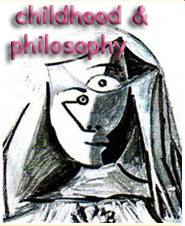dialogue with gert biesta: philosophy and education
DOI:
https://doi.org/10.12957/childphilo.2017.29958Keywords:
subjectivation, learning, teaching, assessment, measurement, interpersonal relationshipAbstract
Biesta approaches different important educational topics that deserve some clarification and exploration. To begin with, Biesta emphasizes the preferential position that subjectification should occupy in education, a thesis I agree with. Nevertheless, qualification and socialization are also fundamental domains in education, much more in formal education. The aim of education, therefore, is to achieve an adequate balance between the three domains that makes possible a full educational process. On the other hand, it is valuable proposal to recover the importance of the act of teaching, in a period of learning focuses the attention in educational environments. However, we need also to achieve a balance between teaching and learning; thus, a contrast between the two dimensions of education should not be highlighted: there is not teaching without learning, and there is not learning without teaching. Likewise, evaluation and measurement are essential elements of education, even if they involve risks that must be avoided. If we want to achieve some educational aims, we have to be able to find out whether we got them and how much we have achieved. That is, we have to measure and compare. Finally, education is an interpersonal relationship characterized by openness and encounter, which includes a positive view of heteronomy and obedience, in which empowerment does not preclude acceptance of interdependence and vulnerability.Downloads
Download data is not yet available.
Downloads
Published
2017-09-08
How to Cite
MORIYÓN, Félix garcía. dialogue with gert biesta: philosophy and education. childhood & philosophy, Rio de Janeiro, v. 13, n. 28, p. 579–587, 2017. DOI: 10.12957/childphilo.2017.29958. Disponível em: https://www.e-publicacoes.uerj.br/childhood/article/view/29958. Acesso em: 10 may. 2025.
Issue
Section
dossier




